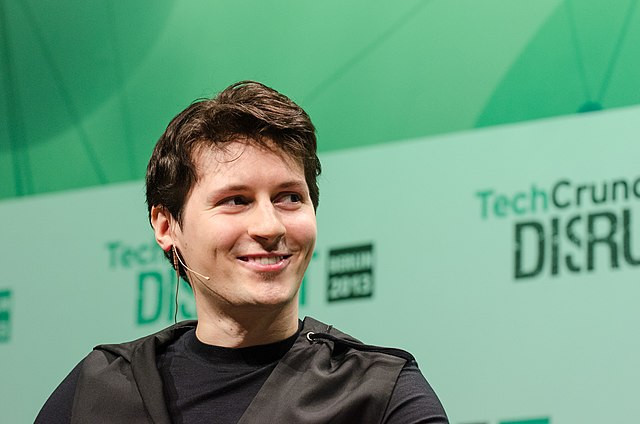Relations between Russia and France have plunged to their lowest point in recent history following the controversial arrest of Pavel Durov, the Russian-born founder of the popular messaging app Telegram. The arrest, which occurred over the weekend near Paris, has sparked a heated diplomatic row, with Moscow accusing Paris of political motivations and undermining free speech.
Pavel Durov, who holds both Russian and French citizenship, was apprehended as part of an ongoing investigation into serious allegations including organized crime, drug trafficking, and the distribution of pornographic images of minors on Telegram. The Paris Public Prosecutor's Office issued a warrant for Durov's arrest on July 8, intensifying scrutiny on the tech billionaire's operations.
Russian Foreign Minister Sergei Lavrov stated on Tuesday that the arrest has caused a significant strain in Moscow-Paris relations. "The situation with Durov's detention has brought our bilateral ties to a new low," Lavrov remarked, highlighting the broader context of deteriorating relations between the two nations. The extension of Durov's detention until Wednesday by French authorities has further inflamed tensions.
Kremlin spokesman Dmitry Peskov has vocally criticized France's actions, suggesting that the arrest may be politically motivated. "The charges against Durov are indeed very serious," Peskov said. "They require a correspondingly serious basis of evidence. Without it, this could be seen as an attempt to restrict freedom of communication." Peskov's comments underscore Russia's concern that the charges could be a pretext for political maneuvering rather than a legitimate legal action.
Peskov also revealed that Russia is prepared to provide all necessary assistance to Durov, despite the complexities introduced by his French citizenship. Additionally, the UAE, where Durov holds a passport, has offered diplomatic support, with officials stating they are "closely following the case" and have requested urgent assistance from French authorities.
Durov's arrest comes amid broader geopolitical tensions, particularly regarding the Ukraine conflict. French President Emmanuel Macron has been a staunch supporter of Ukraine, and recent months have seen increasingly strained relations between Paris and Moscow. Macron has dismissed suggestions that Durov's arrest is politically motivated, emphasizing that it is a matter of legal process.
The arrest of Durov, who is also known for his outspoken stance on free speech, has ignited a global debate about the limits of online expression. Elon Musk, owner of X (formerly Twitter), has weighed in on the controversy, criticizing European policies that he perceives as threats to free speech. Telegram, with nearly 1 billion users, has become a significant platform for various political and social movements, further complicating the issue.
The platform has been a critical communication tool in the Russia-Ukraine war, utilized by both governments and military personnel for disseminating information and propaganda. This role has only heightened the scrutiny and controversy surrounding Durov's arrest.
In a broader context, the arrest reflects ongoing global tensions over the regulation of digital platforms and the balance between security and freedom of expression. Similar controversies have occurred in other countries, such as Brazil, which briefly suspended Telegram in 2022 over compliance issues.






